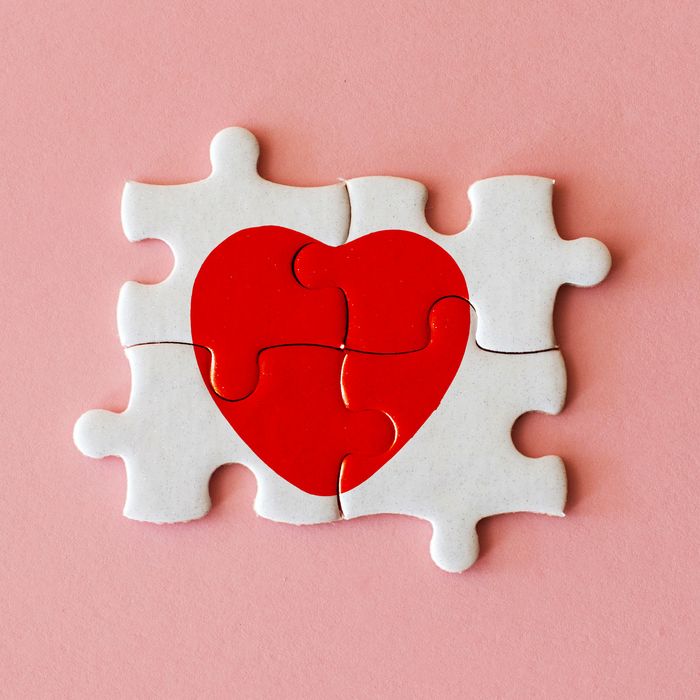There are only twelve of these qualities and they do not have a hierarchy, each of them is equally important.
1. When choosing a partner, it is important to look beyond their outward appearance and cultural influences. One way to do this is to close your eyes and focus on the qualities that truly matter, such as kindness, loyalty, insight, and devotion. By doing so, you can tap into your intuition and gain a deeper understanding of who the person is as an individual.
While physical attraction and cultural background may be important factors in choosing a partner, it is ultimately their inner qualities that will determine the success and longevity of a relationship. By using your inner senses, you can tap into your intuition and gain a better understanding of a person’s true nature, beyond any societal expectations or cultural conditioning.
2. Another important factor to consider when choosing a partner for a long-term relationship is their ability to learn and grow. A person who is unwilling to learn and adapt to new situations may not be the best fit for a long-term commitment.
On the other hand, someone who is open-minded, curious, and willing to learn can make a great partner for a long-term relationship. This is because they are more likely to be able to adapt and change as the relationship evolves over time.
Of course, being open-minded does not mean being blindly agreeable. It is important to find someone who can balance their openness with their own values and beliefs, and who is willing to stand up for themselves when necessary. By choosing someone who is both open and strong, you can build a relationship that is both dynamic and resilient, able to weather the ups and downs of life together.

3. Look for someone who embodies both strength and sensitivity. These qualities, often associated with femininity, are like those of a tree that can withstand strong winds by being flexible. Sensitivity is the ability to be present and aware of what’s happening around you. Everyone has the potential to be sensitive and alive, but some may need help expressing it. That’s where the ability to learn comes in. Look for someone who is willing to develop their potential to be a kind, loving, and faithful partner.
4. Choose someone who shows they are hurt when you hurt them, and who also recognizes your pain and tries to make amends. It’s normal for people to have different ways of expressing pain, but what’s concerning is a lack of reaction to unkind or hurtful behavior. This could mean that they’ve been traumatized by past relationships, so it’s important to be able to show and feel each other’s pain to avoid repeating past mistakes.
5. Find someone with their own interests and passions, who sees you as a partner and fellow traveler in life’s journey. It’s important to have both connection and separateness in a relationship, to respect each other’s cycles and rhythms. Look for a relationship where the connection may stretch across time and distance, but never breaks completely. Avoid relationships where there is no connection or where the rhythms don’t match up.
6. When entering into a relationship, it’s crucial to consider the compatibility of your partner. Sharing common interests and hobbies can help create a sense of bonding and togetherness, making the relationship more fulfilling. Engaging in enjoyable activities together also creates opportunities for shared memories, which can help keep the relationship strong during difficult times.
7. Aside from shared interests, it’s also important to consider values. People have different views on important issues such as family, money, and religion. Finding someone who shares your values or is willing to compromise can help prevent conflicts and lead to a more harmonious relationship. It’s recommended to discuss these values early on to avoid misunderstandings.

8. Furthermore, it’s vital to have a partner who is able to empathize and listen. In relationships, being able to understand and support your partner can make all the difference. Even if both partners have different personalities, over time, their rhythms can synchronize and create harmony. This can help build a strong foundation for the relationship, which becomes more resilient to challenges as time passes.
9. Choose someone who can laugh at themselves. This is an important quality in a partner, not just because it’s endearing, but also because it can diffuse tense situations. When you’re in the middle of an argument, being able to laugh at yourself or at a joke can help ease the tension and make the situation less confrontational. The ability to laugh at oneself also shows that the person is comfortable with their own imperfections and can take responsibility for their mistakes. If your partner isn’t naturally inclined to be lighthearted, pay attention to whether they can still diffuse a tense moment by bringing levity to the situation. This skill takes practice and requires you to resist the urge to escalate the conflict. If your partner struggles with this, it’s important to remember that the ability to learn is a key quality to look for in a partner. Additionally, you should also strive to develop this skill in yourself so that you can contribute to maintaining harmony in your relationship.
10. The ability to “turn a blind eye” to some shortcomings and characteristics is an essential quality for any relationship. Over time, the qualities that once attracted you to your partner can become annoyances. For example, Dr. Estes shares a story about her ex-husband’s habit of rattling change in his pocket, which she initially found charming, but eventually found to be incredibly annoying. It’s important to be aware of what you can tolerate and what you cannot. Don’t be tempted to overlook or romanticize behaviors that are harmful or unsustainable in a long-term relationship, such as alcoholism, drug abuse, gambling, or illegal activities. Similarly, a person who is not capable of telling the truth, repenting, or admitting their mistakes puts the relationship on shaky ground. Be aware of the qualities that are essential to the health of your relationship, and make sure that your partner is aware of them too.

11. In addition to loving each other, it’s important to also be friends. Being friends means that you’re willing to do things for your partner that you would do for a friend, such as listening to them, talking about things that interest them, and doing activities that they enjoy. Of course, you shouldn’t feel obligated to meet every demand or need of your partner, but being there for them on a regular basis is essential to building a strong, healthy relationship. When you consider the things that you’re willing to do for your friends, and how much you’re willing to do them, it can help you understand what you’re willing to do for your partner and what you expect in return.
12. The most important quality of all is that your partner makes your life bigger, not smaller. This means that being with your partner should enhance your life and make it better, rather than detract from it. When you’re with the right person, your world should expand and you should feel like a better version of yourself. A good partner will challenge you to grow, while also being there to support you when you need it. If your partner makes you feel small, insecure, or unimportant, it’s a sign that the relationship may not be healthy or sustainable. The key is to choose a partner who uplifts and enhances your life, rather than one who brings you down. Ultimately, following these guidelines can help you build a strong, healthy, and fulfilling relationship with a partner who is truly right for you.



